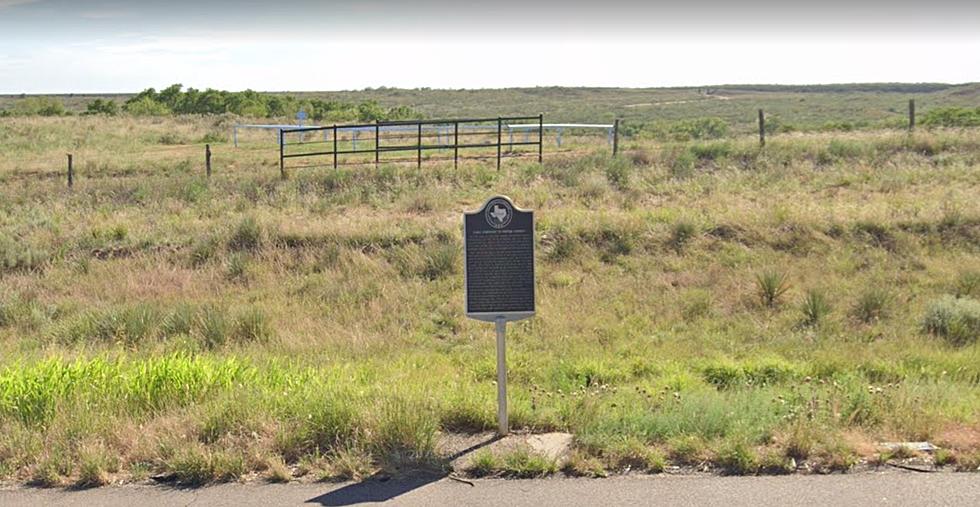
Amarillo’s Strange Tale of a Murder Suspect Who Represented Himself
I bet you've heard about the Darrell Brooks trial in Waukesha, Wisconsin. You know, the man who drove his SUV into a Christmas parade, killing six people and injuring 70; the one where he chose to represent himself at his trial.
Yeah. That one.
If you've seen any of the clips circulating around social media, then you know exactly how chaotic that courtroom was. It's not often that defendants choose to represent themselves at trial (or pro se, in legal terms). But it happens.
But I bet you didn't know that it's happened right here in Amarillo, Texas.
Before Darrell Brooks, There Was Clifford Scott Medley
In June of 1995, police found the body of 36-year-old Frankie Steinbrecher in a ravine off of Highway 136. She had been strangled and her body dumped in that location. Her 28-year-old on-again, off-again boyfriend, Clifford Scott Medley, was implicated, arrested, and indicted on a charge of murder.
The First Trial
In the initial pretrial hearings, Medley elected to represent himself. According to appellate court records, his insistence on acting pro se in front of a jury stemmed from a desire to make "his side of the story" known--a sentiment echoed by Darrell Brooks in his opening arguments in Waukesha.
As the trial date loomed closer, Medley's common sense kicked in and made a request to withdraw his prior waiver of counsel. The trial judge said, in essence, "nope, no takesies-backsies", but did bring in Medley's initial appointed attorney to act as stand by counsel.
The trial continued on with Medley as pro se. And much like Darrell Brooks' trial, the results were disastrous.
In an uncomfortable parallel to Brooks' cross-examination of his surviving parade victims and their family members, Medley cross-examined witnesses that included her son and best friend.
Here's Where It Gets Strange
Medley also made an effort for the identities of arresting officers to be made known to him, a motion that was denied by both the court and his stand-by counsel on grounds of irrelevance.
Why is it irrelevant, you ask?
You see, when Medley was initially arrested, it was not on murder charges. The day after Steinbrecher's death, a local farmer found Medley in a field outside his house "rolled up in a ball with a towel over his head," wearing the farmer's coveralls and trying to bury himself in the mud.
The farmer did the next sensible thing: held Medley at gunpoint while he called the police.
After police arrived, they found that Medley had broken into the farmer's detached garage and arrested him for vandalism. On the way to the jail, Medley kicked out the back windows of the patrol car, escaped, and fled. The officer gave chase and watched as Medley, who was not wearing any shoes, jumped down an embankment over ten-feet high, onto concrete, breaking both of his heels and puncturing a lung.
Medley continued to flee until the officer caught him--even then, it took several more officers to subdue him. Once back in custody, he was taken to the hospital, where he remained until he was connected to and arrested for Steinbrecher's murder.
Once he was in Potter County jail, he began an extended litigation with the City of Amarillo for excessive use of force by police officers following his re-capture. That's right. At the time of his murder trial, he was in the process of suing the police force for injuries sustained during his escape--and attempted to use his pro se status as a way to uncover the identities of these officers.
He managed to take this civil suit all the way to the federal court's 5th Circuit of Appeals before it was given the permanent boot.
But back to the trial.
Unsurprisingly, the jury deliberated for only a few short hours before returning with a verdict of guilty and sentenced him to life in prison.
A Shocking Stroke of Constitutional Luck
Following his conviction, Medley appealed the judgment on the grounds that his Sixth Amendment right to counsel had been violated when the judge did not accept his request to withdraw the waiver of counsel. In a surprising turn of events, the appellate court agreed and sent the case back for a new trial.
This time, Medley wisely opted to be represented by counsel for the entire trial and consequentially received a much lighter sentence of 40 years.
And that's why you don't go pro se, folks.
Amarillo On
Texas Crime Statistics By City
More From Mix 94.1









